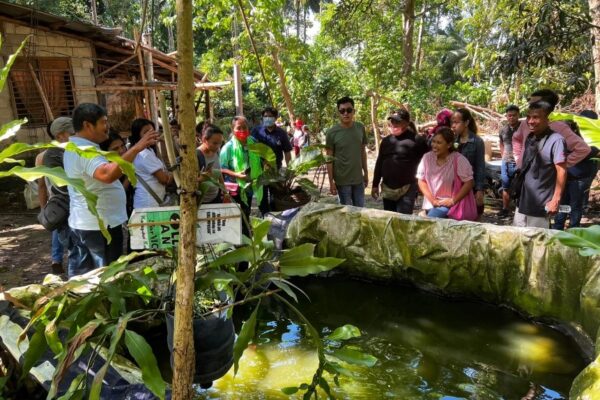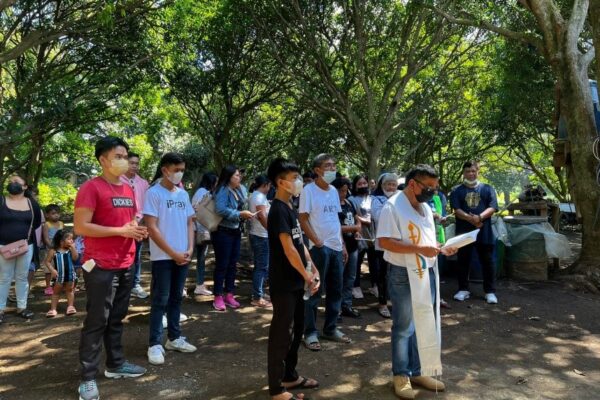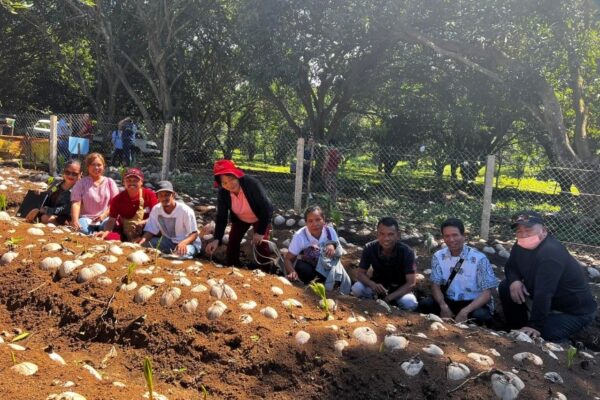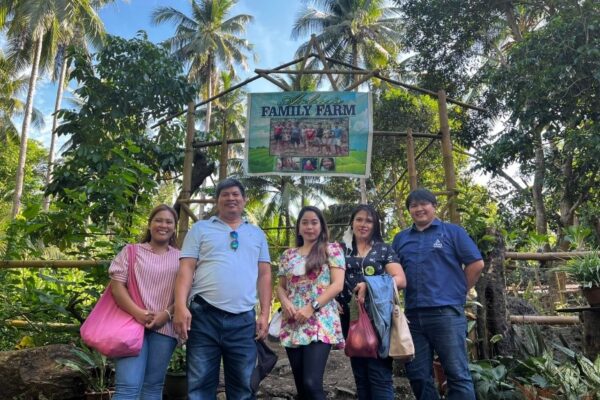
Fairtrade Projects are planned undertakings that involves the use of funding and other resources to accomplish the objectives meaningfully through different activities. To create a Project the producer organisations’, need to conduct a needs assessment, plan the priorities, objectives, activities, and implementation process, allocate resources effectively and monitor, evaluate and learn from the process.
Fairtrade Premium Investments are one of the important projects that requires a need assessment consultation between the members to identify and improve the overall social, economic and environmental sustainability needs of the members, their families and communities. It would be a basis for the usage of the Fairtrade Premium which is a sustainable development program/project which will be shown in the Fair Insight. The assessments are support through country-specific data via surveys and interviews which reflects the actual needs of the members. This need intervention forms the basis for the usage of the Fairtrade Premium. It is crucial to practice the Fairtrade Values in the development of the Fairtrade Premium Plan which are accountability, respect, integrity, and partnership.
To help the producer organisations formulate a proper and comprehensive assessment questionnaire for their Fairtrade Premium and to assist them in properly assessing the planned activity and budget, a 03-day Fairtrade Organisational Development Needs Assessment Framework Consultation was organized by Fairtrade NAPP in the Philippines with 13 SPOs (small scale producer organisations).
Natasha Erika; Fairtrade Program Consultant for Philippines mentions – ” One factor that could potentially hinder the success of SPO projects is not conducting a community needs assessment plant in the producers’ respective organizations”.
In the first session, the producers were introduced to the concept of Fairtrade Producer Network of the Philippines which aims to promote the Fairtrade movement at local and national levels in the country. In terms of inclusivity, the Network accepts producers who are not Fairtrade-certified as Associate Members. Under the partnership with TRIAS ( Member-based international development organization that exists to improve the lives of its members and their community as a whole), it will provide capacity-building support to the members and their livelihood project will mainly focus on farm diversification.
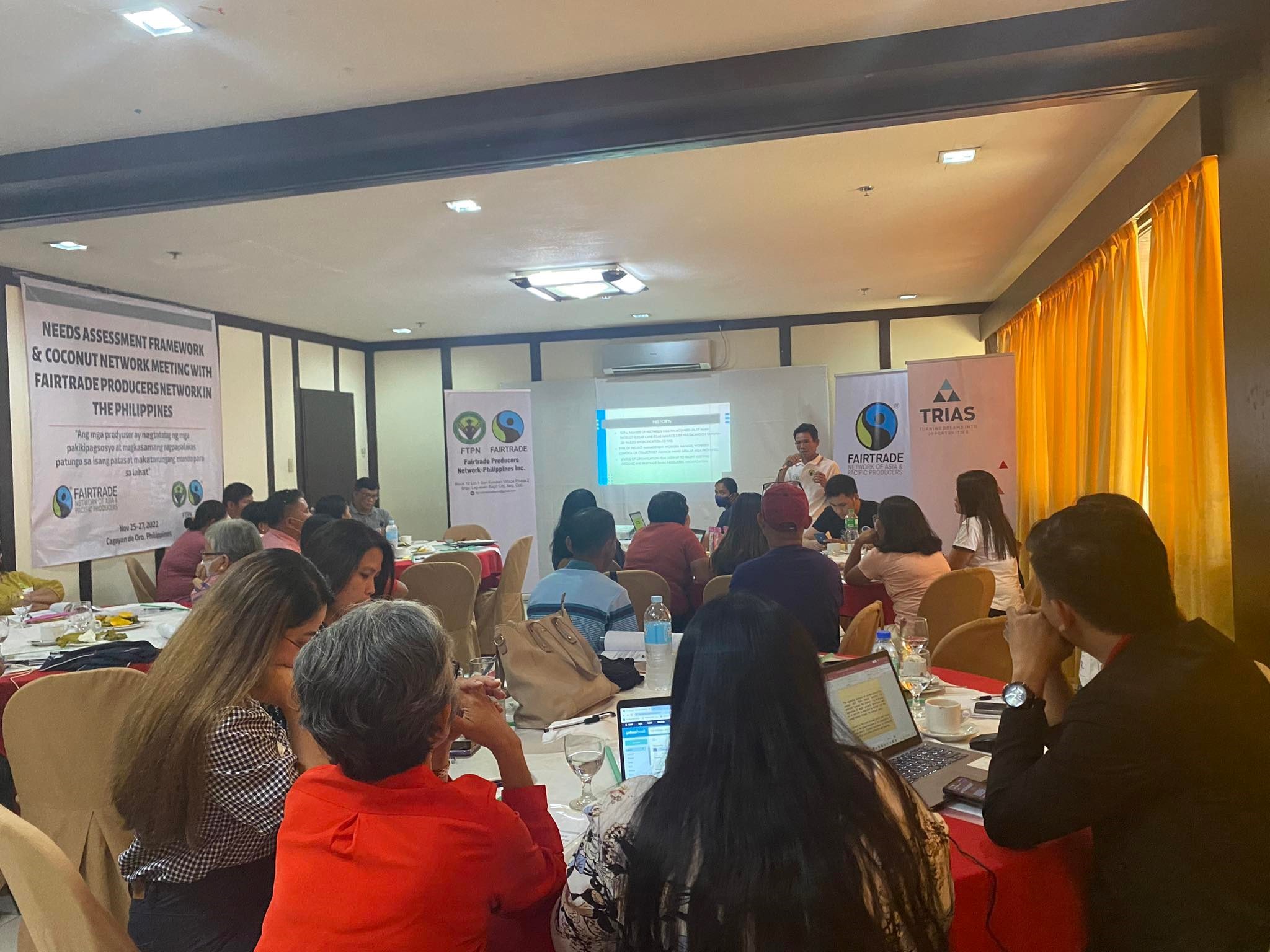
Post the need assessment training, the producers were briefed on Fairtrade Standard and Pricing by Iresha Sanjeewanie. Each SPOs were given a particular time to share their feedback, through which their voices could be included in the standard setting prices.
The next session was followed by presentations from producer organisations on the challenges and trends in producing and selling of Fairtrade and non- Fairtrade products. Some of the challenges highlighted were related to the impact of the pandemic and the Ukraine war on the market and its subsequent impact on sales and Fairtrade premium, lack of working capital, climate change, loss of bio-diversity, price fluctuation and inflation.
“Awareness of consumers on Fairtrade here in the Philippines is still weak, its shared values and a desire to help can be the driving forces for social entrepreneurs to consider Fairtrade”. –Aljun Nilo of Coco Davao Inc.
A workshop was also conducted to take the inputs and suggestions from the producers on how to improve the Fairtrade NAPP services ( certification advisory, capacity building, market access, environment and climate change, partnership, funding and advocacy initiatives) in the country.
 On the final day the producers were taken on a field visit for the inauguration of the Hiniusang Mag-uuma sa Balingasag Consumer’s Cooperative (HMBCC) Coconut Farm at Balingoan, Misamis Oriental
On the final day the producers were taken on a field visit for the inauguration of the Hiniusang Mag-uuma sa Balingasag Consumer’s Cooperative (HMBCC) Coconut Farm at Balingoan, Misamis Oriental
Albert Arbuis, Board member of HMBCC shared a brief on the 04 major components of the Coconut Consortium Project : construction of Fairtrade house and coconut nursery, purchase of coconut seedling for growing in the nursery, capacity-building training and distribution of coconut seedling to coconut farmers. The project would address the decline in the number of coconut trees in the region. The native seed planted would last longer compared to the dwarves. As the farm was located nearby to the Fairtrade house, it would help in catering to Fairtrade visitors and Fairtrade activities.



